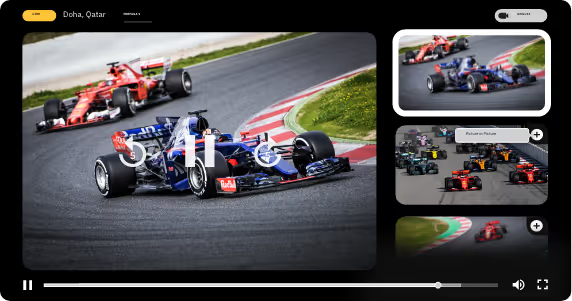It is no secret that smart devices have an enormous influence on all aspects of our daily lives. However, there are two main trends around them that are worth a closer look –especially when it comes to the sports industry.
The first one is the growth in the time spent online. A study from eMarketer from mid 2020 showed that the average adult would end the year spending an additional 23 minutes on their smartphones per day, adding up to an average of 3 hours and 12 minutes. How are they using these additional minutes? Mostly on social media apps and video content. Before we delve into how the sports industry is tapping on this opportunity (or not), let’s go into the second trend: the need for personalization.
Most of our online experiences are specifically tailored to our individual tastes and interests. This is what has made tech companies the most profitable in the last few years. Cookies and crumbs of data are analyzed to provide the best curated content that can trigger a purchase or a specific type of engagement. So far it has worked exceptionally well: according to Marketing Drive, up to 43% of consumers are more likely to purchase when their online experience is personalized, and 57% of them are willing to trade their personal data in exchange for personalized offers, per Salesforce.
How is the sports industry acting on this? Apparently, not quickly enough. Despite the availability of streaming and social media interactions with the athletes they admire, 60% of sports fans surveyed by Deloitte feel that a year-round experience would make them more likely to keep engaged with the team in the next season. Which means that sports fans are not actively engaged for at least half of the year, despite them being one of the most loyal fan bases across industries. They tend to be lifetime fans for their chosen team, whose admiration they often inherit or build around family members or friends’ interests. They pay for pricey tickets to see them play or compete, and they most likely buy their jersey or other memorabilia.
So, where does fan engagement intersect with increased screen time and the need for personalization? In the data, of course. And there is a broad selection of how to get and make the most of it: a gamified experience that increases user retention, provides deeper user insights and offers valuable sponsorship opportunities; social engagement with influencers or players, offered as a perk for in-app purchases or subscription plans; widgets, stickers, and reactions to strengthen the personalized and constantly updated experience; and, finally, in-stadium fan engagement to interact with their physical surroundings.
The constant flow of these experiences and their users is what will determine the type of engagement they will request. For companies who will have to tend to this market, this requires an appropriate analysis, which, in turn, depends on the correct use of the data. But in the end, it all comes to the same: making the best out of how fans are engaged is the future of sports entertainment.
Suggested reading

Mobii Systems and UAR Rugby Join Forces to Revolutionize Rugby with Advanced Video and Data Technologies in Three-Year Partnership

Mobii Systems Completes AWS Foundational Technical Review Milestone for Its Ultra Low-Latency Streaming Solutions

Mobii Leads the Way in Zero Latency Streaming: Join the Streaming Media Tech Talk

Mobii ultra low-latency streaming services on Microsoft Azure now available in the Azure Marketplace
Subscribe for original content and announcements.








.png)

.avif)


